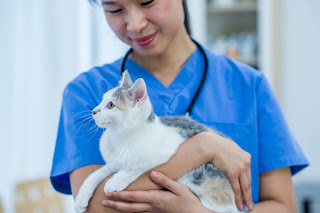All cat owners have endured at least one episode of their cat hacking up a hairball. It is a very unpleasant experience for their cat – and the cat parent. What exactly is a hairball? How do they develop? And are they harmful to your cat friend?
Are some cats more susceptible to hairballs?
Are hairballs harmful to your cat?
What can you do to reduce the risk of hairballs in your cat?
If brushing your cat yourself is not an option, your veterinarian or
a reputable groomer would be able to help you with your difficult kitty. Aim
for at least once or twice a year minimum for grooming appointments.
Purchasing specialized hairball formula food approved by your veterinarian.
There are several options on the market that help control and/or prevent
hairballs. Consult your veterinarian to help you choose the best formula for
your cat.
Administer hairball remedies. They are several types oral gel solutions
that bind to the hair in the cat’s stomach to make it easier for the hair to
pass through their digestive tract. Your veterinarian can prescribe one for
your cat.
Lastly, keep floors clear of any objects, such as twist ties, thread, paperclips, etc. If ingested by your
Disclaimer: The content of this Le CatBlog is based on my own
personal experiences with cats, my own research, and veterinarian consultations.
I am not a veterinarian and my statements should NOT replace advice from a
veterinarian. If you have concerns about
your cat and hairballs, please contact your veterinarian immediately.
A Hairy Dilemma A Hairy Dilemma | Cornell University College of Veterinary Medicine








No comments:
Post a Comment